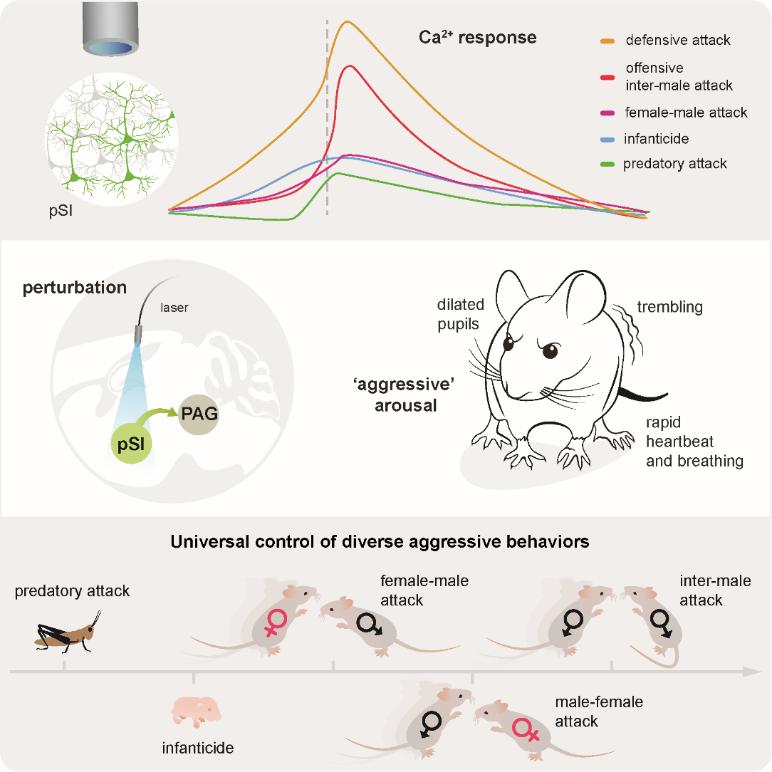The research team led by Prof. Shumin Duan and Yanqin Yu has recently published an article titled “A Substantia Innominata-midbrain Circuit Controls a General Aggressive Response” on Neuron online (DOI: 10.1016/j.neuron.2021.03.002) on March 19, 2021, Beijing time. This research uncovered that the pSI-PAG circuit universally drives multiple aggressive behaviors by encoding a general aggressive state.
While aggressive behaviors are universal and essential for survival, ‘uncontrollable’ and abnormal aggressive behaviors in animals or humans may have severe adverse consequences or social costs. Neural circuits regulating specific forms of aggression under defined conditions have been described, but how brain circuits governing a general aggressive state remains unknown. The researchers found that posterior substantia innominata (pSI) neurons responded to multiple aggression-provoking cues with the graded activity of differential dynamics, predicting the aggressive state and the topography of aggression in mice. Activation of pSI neurons projecting to the periaqueductal gray (PAG) increased aggressive arousal and robustly initiated/promoted all the types of aggressive behavior examined in an activity level-dependent manner. Inactivation of the pSI circuit largely blocked diverse aggressive behaviors, but not mating. By encoding a general aggressive response, the pSI-PAG circuit universally drives multiple aggressive behaviors and thus may provide a potential target for alleviating human pathological aggression.
Graduate students Zhenggang Zhu, Qingqing Ma, Lu Miao, and Hongbin Yang from Zhejiang University School of Medicine are co-first authors. Prof. Shumin Duan and Yan-qin Yu from Zhejiang University School of Medicine are the corresponding authors of this article. This work was supported by the National Key Research and Development Program (2016YFC1306700 and 2016YFA0501000), the National Natural Science Foundation of China (31970939, 81527901, 81821091, 31771167, and 31571090), the Non-profit Central Research Institute Fund of the Chinese Academy of Medical Sciences (2018PT31041), CAMS Innovation Fund for Medical Sciences (2019-I2M-5-057), Science and Technology Planning Project of Guangdong Province (2018B030331001), and Fundamental Research Funds for the Central Universities (2019FZA7009).






 Location :
Location : 

